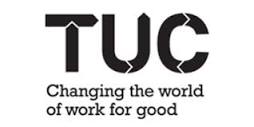HISTORIC PRESS RELEASE : Chancellor addresses US Council of Foreign Relations Transatlantic Taskforce [22 July 2003]
The press release issued by HM Treasury on 22 July 2003.
Speaking to the US Council of Foreign Relations Transatlantic Taskforce in New York, the Chancellor said:
“The transatlantic relationship now accounts for up to $2.5 trillion of commercial transactions every year, including $500 billion of foreign trade, and provides employment to over 12 million people. One fifth of total US merchandise exports and one third of total US services exports now go to the EU. In the 1990s, US firms ploughed nearly twice as much capital into the Netherlands than into Mexico. Corporate America’s foreign assets located in Germany alone are now greater than total US assets in the whole of South America.
“And at the same time, direct European investment in the USA has increased more than ten fold in one decade – to over $200 billion a year – with more European capital now invested annually in America than US capital invested annually in Europe. During the 1990s as a whole, nearly three quarters of all foreign investment in the US came from Europe and there is now more European investment in Texas than all US investment in Japan.
“This means that both Europe and America have a vital interest in each other’s economic prosperity. So this is the right time for a new era of engagement between America and Europe. Instead of seeing globalisation as inviting a weakening of transatlantic ties, we must strengthen them to create a new transatlantic alliance for prosperity that is in both our interests.
“Last month a new joint British-Dutch study that we submitted to the European Commission reported that if we broke down the tariff barriers and the barriers to trade in services between Europe and the United States, employment in Europe could increase by one million, growth in Europe could rise by up to two per cent and in America by up to one per cent.
“Today I want to make some practical proposals about the way forward. As a first step, building on the work already done, I believe the US administration and the EU Commission should work with the UK and other Member States to produce a more detailed analysis of precisely where the barriers to trade across the Atlantic lie, and quantify the benefits of greater trade and investment liberalisation.
“Second, we must take a more pro-active approach to removing non-tariff barriers. In particular, we should set an example to the world with new levels of bilateral regulatory co-operation, assessing the impact on trade and investment before legislation is introduced.
“Third, we need to involve business more in driving forward this agenda. So I have called upon the EU and US to re-launch and reinvigorate the transatlantic business dialogue.
“Fourth, because we know that, in today’s world, prosperity and security go hand in hand, I believe that transatlantic bilateral co-operation should not be at the expense of an ambitious multilateral agenda. Europe and America must work together in the World Trade Organisation. It is estimated that if we were to halve protectionism in agriculture and in industrial goods and services we would increase the world’s yearly income by nearly $400 billion dollars: a boost to growth of 1.4 per cent. Developing countries would gain the most in terms of GDP growth – $150 billion a year – but all countries and regions, including ourselves, stand to benefit. So in the next few months running up to Cancun we must pursue a common agenda to break the deadlock in world trade. Europe and America must take the lead in the trade talks and work together if they are to succeed – standing firm and resisting political pressures for protectionism.
And in relation to Iraq, the Chancellor said:
“Britain and the US were right to take military action against Saddam Hussein. We should not forget that Saddam had used weapons of mass destruction against his own people, and that resolution 1441 – which listed the weapons of mass destruction believed to be in Iraq, as agreed unanimously by the UN Security Council – made clear that compliance this time had to be full, unconditional and immediate.”


